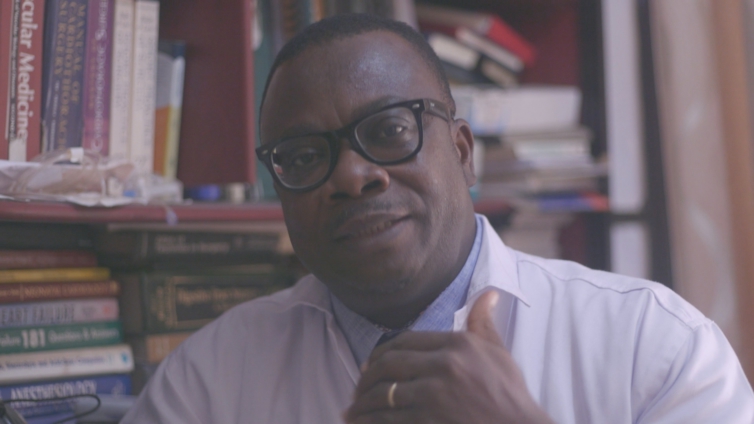Medical scientists at the School of Medicine and Dentistry at the Kwame Nkrumah University of Science and Technology have successfully carried out the first implantation of the novel biological heart valve in Africa.
The valve known as the Inspiris Resilia Aortic Valve was implanted by a team led by Dr. Isaac Okyere from the Department of Surgery.
The aortic valve controls the flow of blood between the left ventricle of the heart and the main artery of the body, the aorta thereby allowing blood to be delivered to every part of the body.
The normal aortic valve consists of three parts which are the leaflets and therefore it is said to be tri-leaflet.
The Inspiris Resilia Aortic valve which is an artificial biological valve is also a tri-leaflet valve made from cow’s heart tissue and specially purified with special agents to resist or reduce the degeneration of the valve by reducing the deposition of calcium. This increaeses the durability of the valve and therefore is found to be very useful in young people.
The valve has generated intense interest in many cardiothoracic surgery centres in Africa because of the young population of patients in Africa with heart valve diseases and the challenge of implanting mechanical or metallic valves in these young people with the risk of lifelong medication with the blood thinner drug, warfarin. Again, the implantation of the current tissue valve, the Perimount tissue valve is exposed to early destruction or structural valve degeneration from calcium deposition.
In pre-clinical studies, the Inspiria Resilia Aortic valve was shown to reduce the formation of calcium deposits on the aortic valve as compared to the commonly-used tissue valve, the Perimount tissue valve. This therefore generated the greater interest in the world of cardiothoracic surgery for its implantation especially in the young and in Africa.
There is therefore the dual advantages of the avoidance of the use of warfarin with its associated complications and the increased durability of the valve.
Therefore, the Resilia Aortic is bound to be the perfect tissue valve for Africa.
The valve was implanted in a 57-year-old patient with a severe aortic valve disease who needed urgent surgery for replacement of the valve. Surgery was successfully done in Kumasi at the Komfo Anokye Teaching and the patient has been followed up for the past 3 years doing very well. Dr. Okyere is very happy with the outcome.
“He presents well-healed wounds and transthoracic echocardiography revealing a well-seated valve with no regurgitate flow or perivascular leak,” he said.
“This may well be the first report describing the use of the Inspiris Resilia Aortic valve that has increased durability without requiring anticoagulation in Africa,” he added.
Latest Stories
-
Two hit by stray bullet as Police clash with ‘wee smokers’
10 mins -
Okyeame Kwame aims for another Artiste of the Year win after 15 years
22 mins -
NAGRAT gives government one-week ultimatum to redeem unpaid pensions for 700,000 workers
24 mins -
Deloitte launches Technology, Media and Telecom predictions for 2024
42 mins -
Meta AI expands to Ghana, Nigeria and other countries in Africa; adds new features
53 mins -
GPL: Expect a new Kotoko against Samartex – Ogum tells fans
2 hours -
Court orders service of notice for DNA test to Mohbad’s wife
2 hours -
Changes to Ghana’s oil and gas royalty and licensing scheme to be implemented in 2024
2 hours -
Ghana’s oil production to rebound in 2024 growing by 5% – Fitch Solutions
2 hours -
Davido gifts fan $50K to clear off her student loan
2 hours -
Netflix: Profits soar after password sharing crackdown
2 hours -
OSP files additional charges against former PPA CEO Adjenim Boateng Adjei
2 hours -
Samuel Anini’s ‘Legacy of Hope’ to be launched in Finland
2 hours -
Fitch Solutions projects 19.0% average inflation for Ghana in 2024
2 hours -
Beijing half marathon: Top 3 stripped of medals after investigation
2 hours

